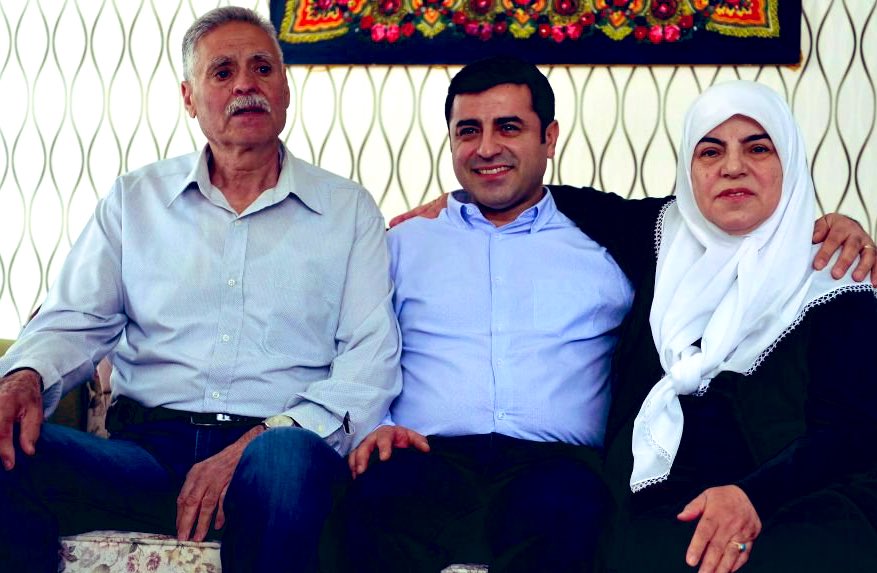Jailed Kurdish leader Selahattin Demirtaş has visited his ailing mother in a hospital in southeastern Diyarbakır province after he was granted permission by the authorities, the T24 news website reported on Wednesday.
Demirtaş, a two-time presidential candidate and former co-chair of the pro-Kurdish Peoples’ Democratic Party (HDP) — and currently the most prominent Kurdish politician in Turkey — has been behind bars since November 2016 on politically motivated charges.
The Kurdish leader was flown from Edirne in northwestern Turkey to Diyarbakır on Tuesday evening to visit his mother, Sadiye Demirtaş, who had been admitted to a private hospital after falling ill.
Başak Demirtaş, his wife, was also at the hospital during his visit.
Armored military vehicles were stationed at the entrance and emergency exit of the hospital where Demirtaş spent three and a half hours, with many special forces police and gendarmerie teams taking extensive security measures around the hospital.
Following the visit, Demirtaş was escorted into an armored vehicle and taken to Diyarbakır Airport to fly back to Edirne.
“Our prayers are with our mother Sadiye. Our only wish is for her to recover as soon as possible,” the pro-Kurdish Peoples’ Equality and Democracy Party (DEM Party) said on X.
Demirtaş’s father, Tahir Demirtaş, passed away on December 31, 2023. He refused to attend his father’s funeral in protest of his imprisonment.
He was an outspoken critic of the ruling Justice and Development Party (AKP) and its leader, President Recep Tayyip Erdoğan, before he was jailed. He ran in the presidential elections of 2014 and 2018 as a rival to Erdoğan. The imprisoned leader conducted his election campaign from jail for the 2018 election.
Demirtaş previously listed in a series of tweets four court decisions for his release that were handed down by the European Court of Human Rights (ECtHR) in 2018, the Ankara 19th High Criminal Court in 2019, the Constitutional Court in 2020 and the Grand Chamber of the ECtHR in 2021, saying President Erdoğan had prevented compliance with those decisions.
